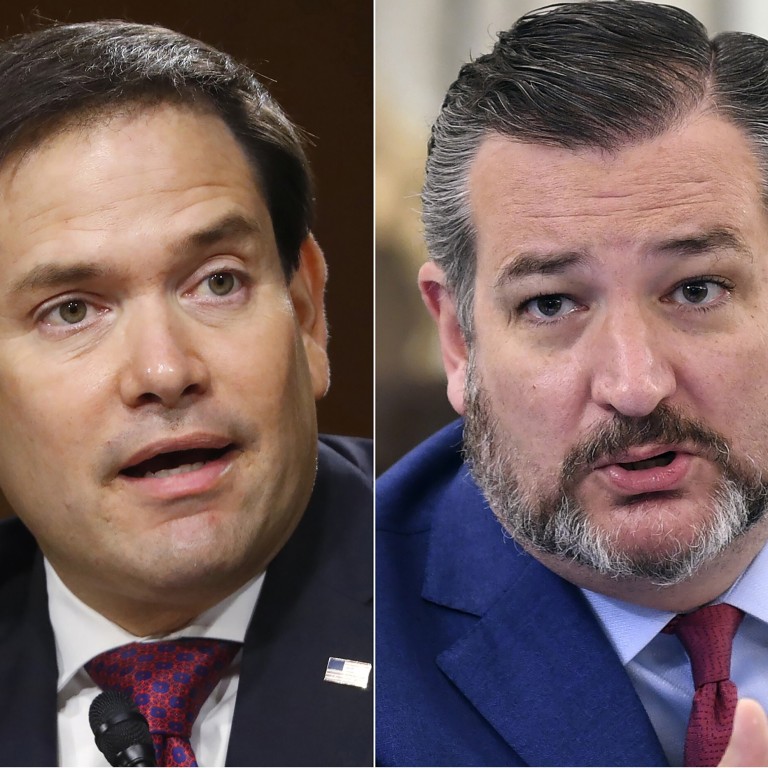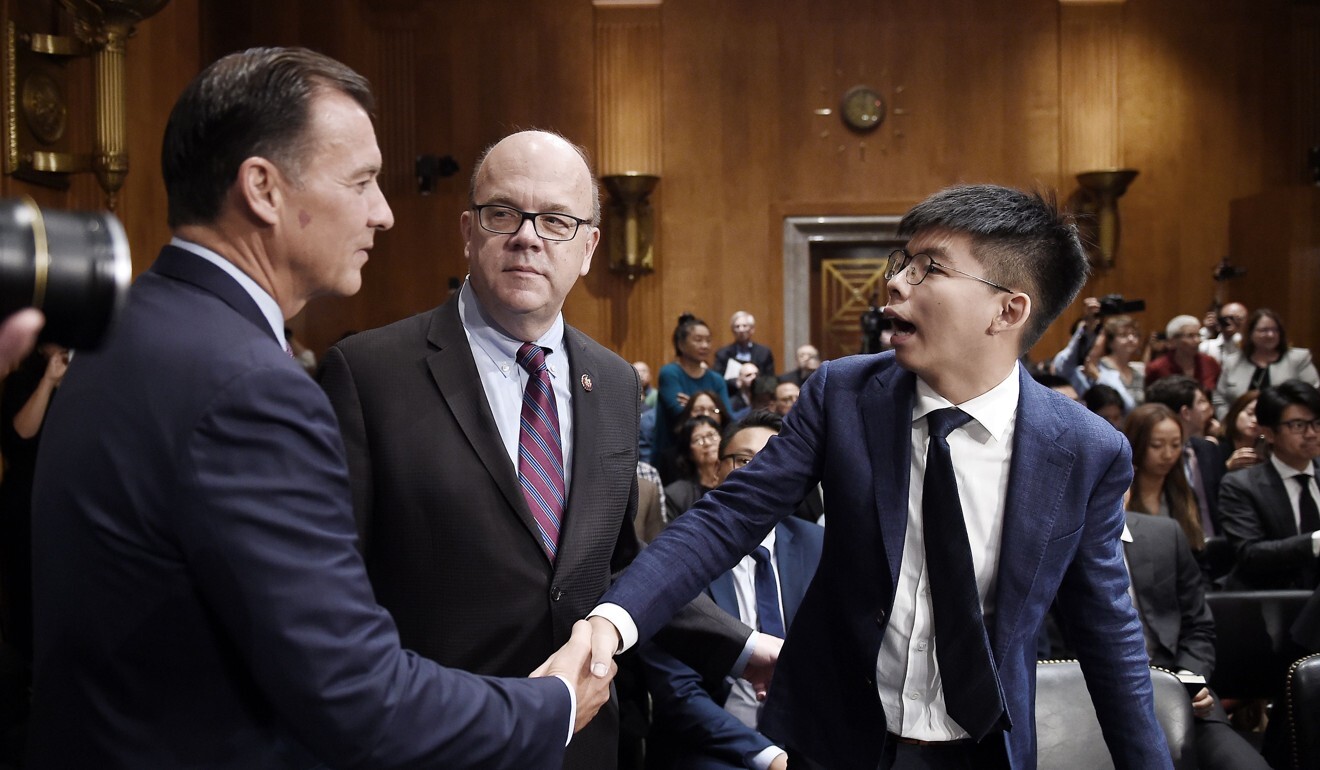
US officials targeted by Beijing shrug off sanctions but vow to keep pressing on human rights
- ‘We must continue to stand with the Chinese people against an increasingly authoritarian Chinese government,’ says a lawmaker who was singled out
- Beijing retaliates against Washington’s sanctions of Chinese officials for their suspected role in human rights abuses in Xinjiang
Singled out for sanctions were the Trump administration’s special envoy for religious freedom, Sam Brownback; Senators Marco Rubio and Ted Cruz; Representative Chris Smith; and the Congressional-Executive Commission on China (CECC), an influential panel that advises Congress and the administration on human rights matters in China.
Representative Tom Suozzi, a CECC member, said Beijing’s targeting of the panel only reinforced its “steadfastness to work together to see Beijing and the Chinese government held accountable for their ongoing human rights abuses against Uygur Muslims, Tibetans and the defenders of democracy in Hong Kong”.
“Our resolve, under both the Uyghur Human Rights Policy Act & the Hong Kong Human Rights and Democracy Act … remains undeterred,” Suozzi, a Democrat from New York, said in a tweet, referring to pieces of legislation brought by CECC members that have both become law.
Despite the fact that the congressional onslaught against the Chinese government has been largely bipartisan, the three lawmakers singled out by Beijing are all Republicans. However, Beijing’s designation of the CECC effectively broadens the umbrella to both parties, given that the 17 lawmakers who sit on the panel include both Democrats and Republicans.
All five of the commission’s executive branch positions have been unfilled under the Trump administration.
Beijing’s decision to primarily target legislators over administration officials came despite the fact that last week’s sanctioning of Chinese officials was carried out by the executive branch and under provisions provided by the Global Magnitsky Act, rather than any recent China-focused legislation.
Responding to national security law, US Senate sends sanctions bill to Trump
The Chinese government has not specified what form its own sanctions would take, but said they were “reciprocal” to the US administration’s actions, which will see the targeted Chinese officials stripped of control over US-based assets and barred from entering the country.
In a statement, the US State Department said Beijing’s “threats” would not deter the administration from “taking concrete action to hold [Chinese Communist Party] officials accountable for their ongoing campaign of human rights abuses against members of ethnic and religious minorities in Xinjiang”.
Beijing’s moves “to impose retaliatory sanctions on US government officials and organisations who have worked tirelessly to expose the [People’s Republic of China’s] human rights abuses further demonstrates the CCP’s refusal to take responsibility for its actions”, the statement said.

Smith said on Monday that he had been planning a trip to Beijing, Hong Kong and Urumqi – the capital of Xinjiang – once the coronavirus pandemic had abated, travel that may now be impossible given his inclusion on Beijing’s blacklist.
“The US sanctions Chinese officials for egregiously abusing human rights and Beijing responds by sanctioning members of Congress for defending human rights,” Smith, who is from New Jersey, said in a statement. “We must continue to stand with the Chinese people against an increasingly authoritarian Chinese government that represses legitimate desires for liberty and justice.”
Others, meanwhile, responded with sarcasm, downplaying the sanctions’ intended impact.
“Bummer,” tweeted Cruz, an original co-sponsor of legislation introduced in March that would effectively bar all imports from Xinjiang over forced labour concerns. “I was going to take my family to Beijing for summer vacation, right after visiting Tehran.”
A persistent China hawk and one of a handful of lawmakers who visited Hong Kong last year to meet with opposition activists, Cruz said later on Monday that Beijing was “terrified and lashing out”.
Rubio, who co-chairs the CECC, tweeted blithely: “The Communist Party of [China] has banned me from entering the country. I guess they don’t like me?”
The senator from Florida has introduced a number of bills challenging Beijing on its human rights record, including the recently enacted Uygur Human Rights Policy Act, which calls for sanctions against Chinese officials for human rights abuses in Xinjiang.
Though the White House challenged one of the legislation’s provisions regarding sanctions notifications, and has previously protested legislation in support of Hong Kong’s pro-democracy movement, the administration has shown an increasing willingness to punish Beijing on human rights matters.
Last week’s sanctions came atop previous blacklisting of dozens of Chinese entities – both governmental and commercial – over their suspected role in human rights abuses in Xinjiang. The administration also recently imposed visa restrictions on a number of unnamed Chinese officials over Beijing’s recently enacted national security law in Hong Kong.

